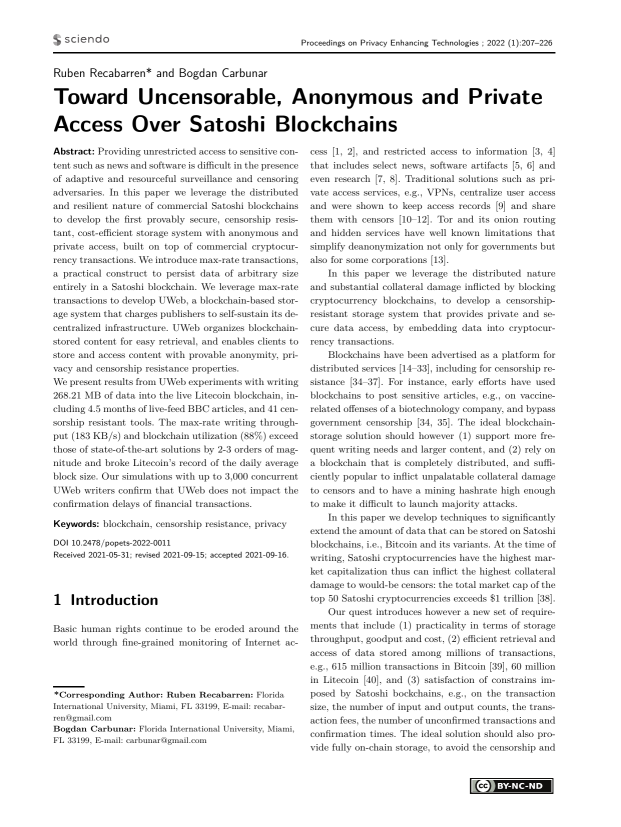Toward Uncensorable, Anonymous and Private Access Over Satoshi Blockchains
Authors: Ruben Recabarren (Florida International University, Miami, FL 33199), Bogdan Carbunar (Florida International University, Miami, FL 33199)
Volume: 2022
Issue: 1
Pages: 207–226
DOI: https://doi.org/10.2478/popets-2022-0011
Abstract: Providing unrestricted access to sensitive content such as news and software is difficult in the presence of adaptive and resourceful surveillance and censoring adversaries. In this paper we leverage the distributed and resilient nature of commercial Satoshi blockchains to develop the first provably secure, censorship resistant, cost-efficient storage system with anonymous and private access, built on top of commercial cryptocurrency transactions. We introduce max-rate transactions, a practical construct to persist data of arbitrary size entirely in a Satoshi blockchain. We leverage max-rate transactions to develop UWeb, a blockchain-based storage system that charges publishers to self-sustain its decentralized infrastructure. UWeb organizes blockchainstored content for easy retrieval, and enables clients to store and access content with provable anonymity, privacy and censorship resistance properties. We present results from UWeb experiments with writing 268.21 MB of data into the live Litecoin blockchain, including 4.5 months of live-feed BBC articles, and 41 censorship resistant tools. The max-rate writing throughput (183 KB/s) and blockchain utilization (88%) exceed those of state-of-the-art solutions by 2-3 orders of magnitude and broke Litecoin’s record of the daily average block size. Our simulations with up to 3,000 concurrent UWeb writers confirm that UWeb does not impact the confirmation delays of financial transactions.
Keywords: blockchain, censorship resistance, privacy
Copyright in PoPETs articles are held by their authors. This article is published under a Creative Commons Attribution-NonCommercial-NoDerivs 3.0 license.

